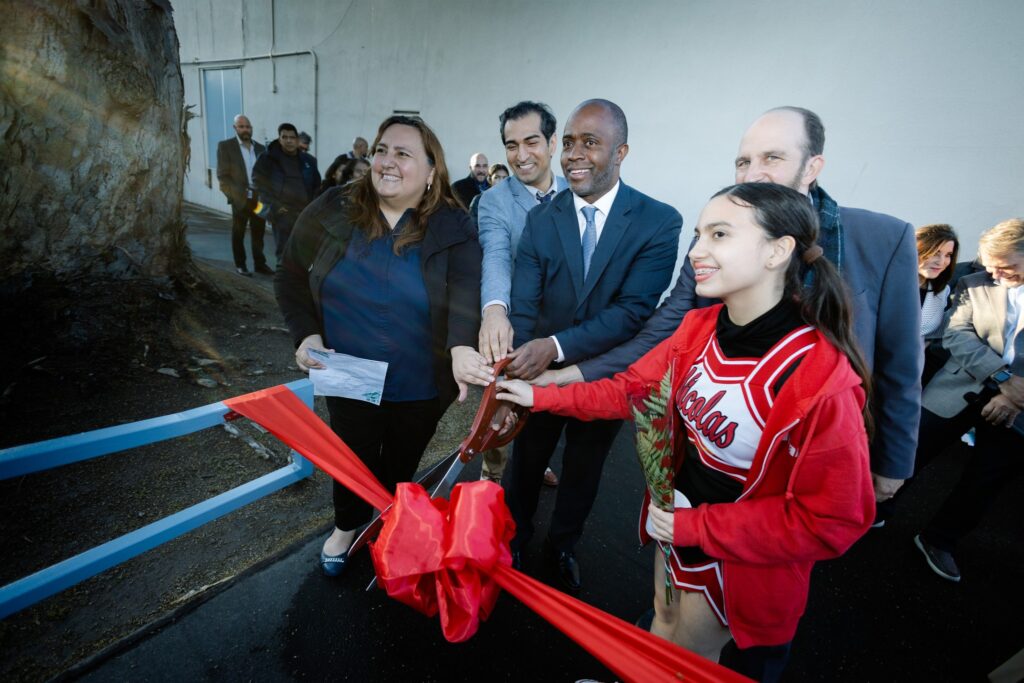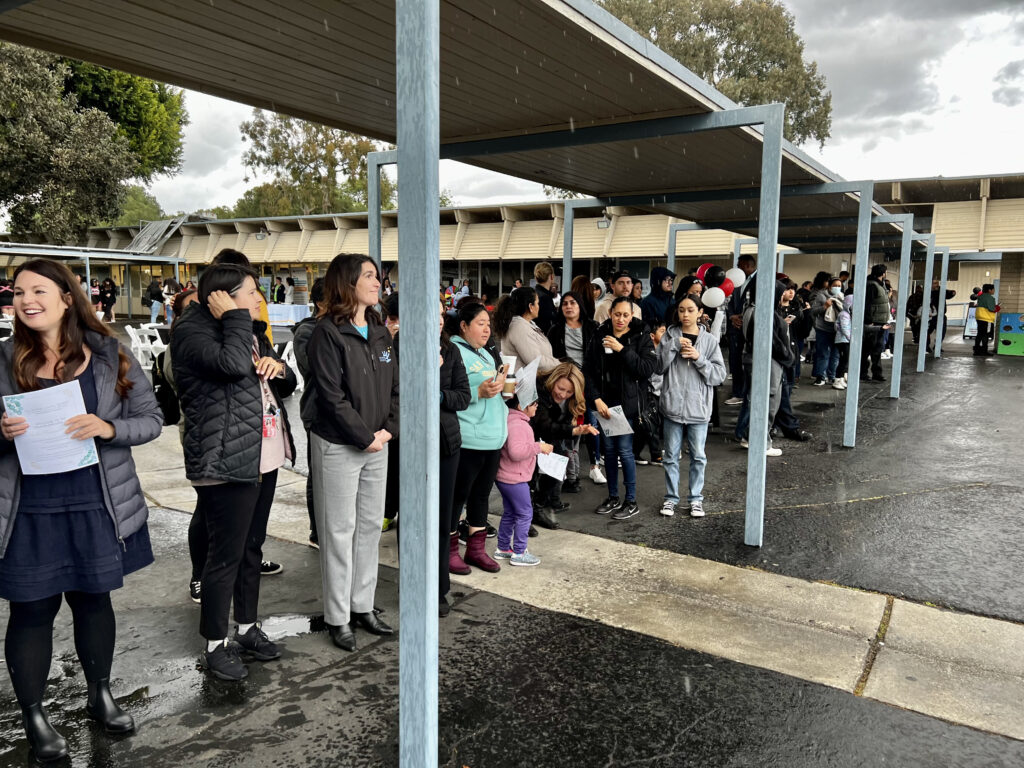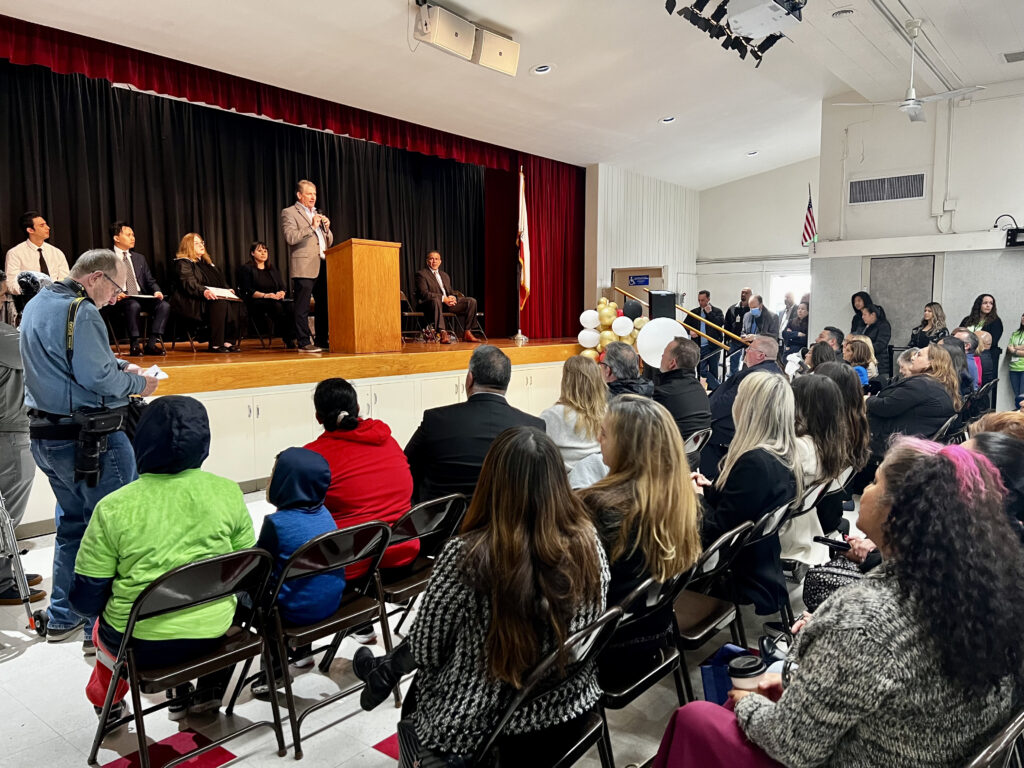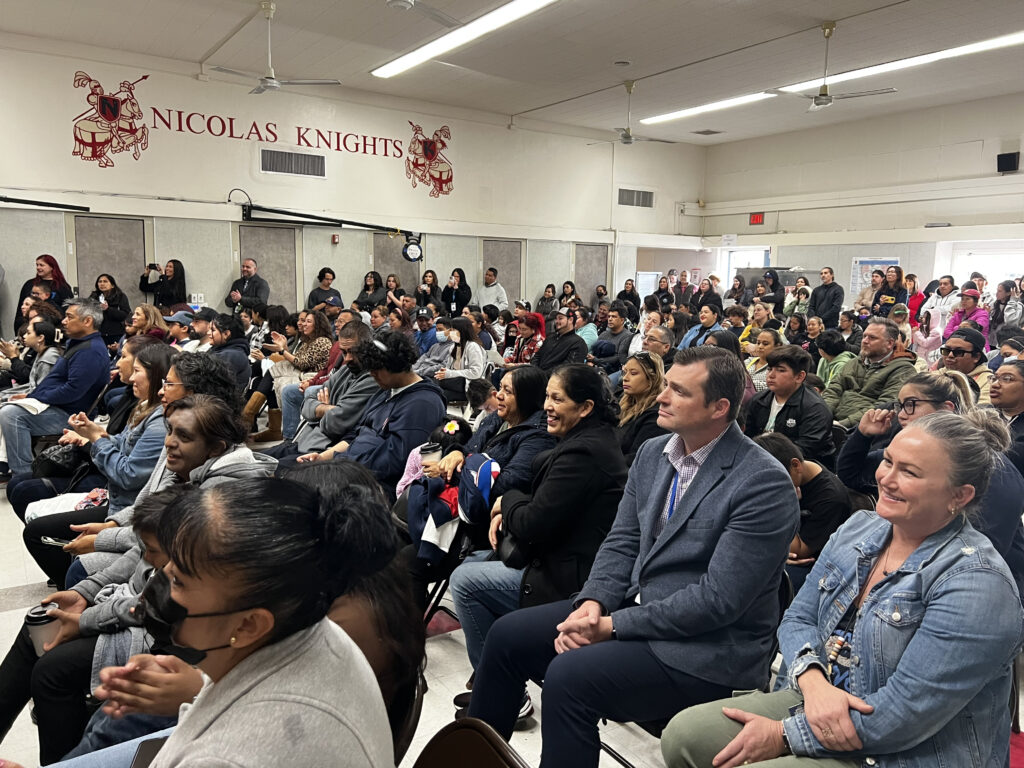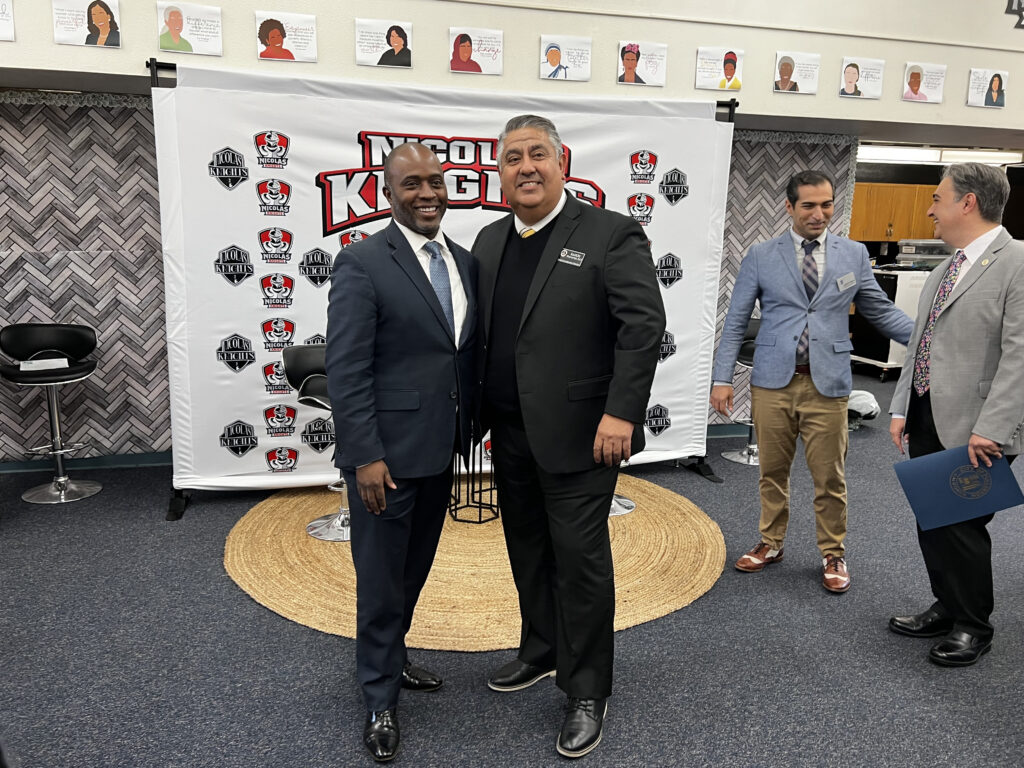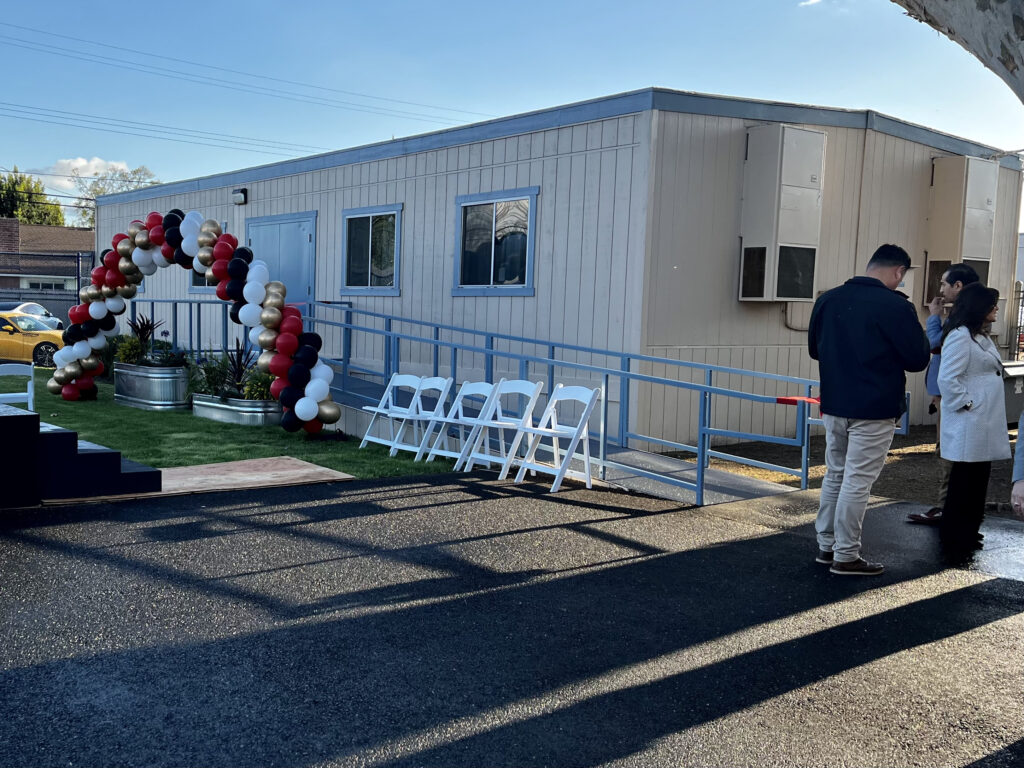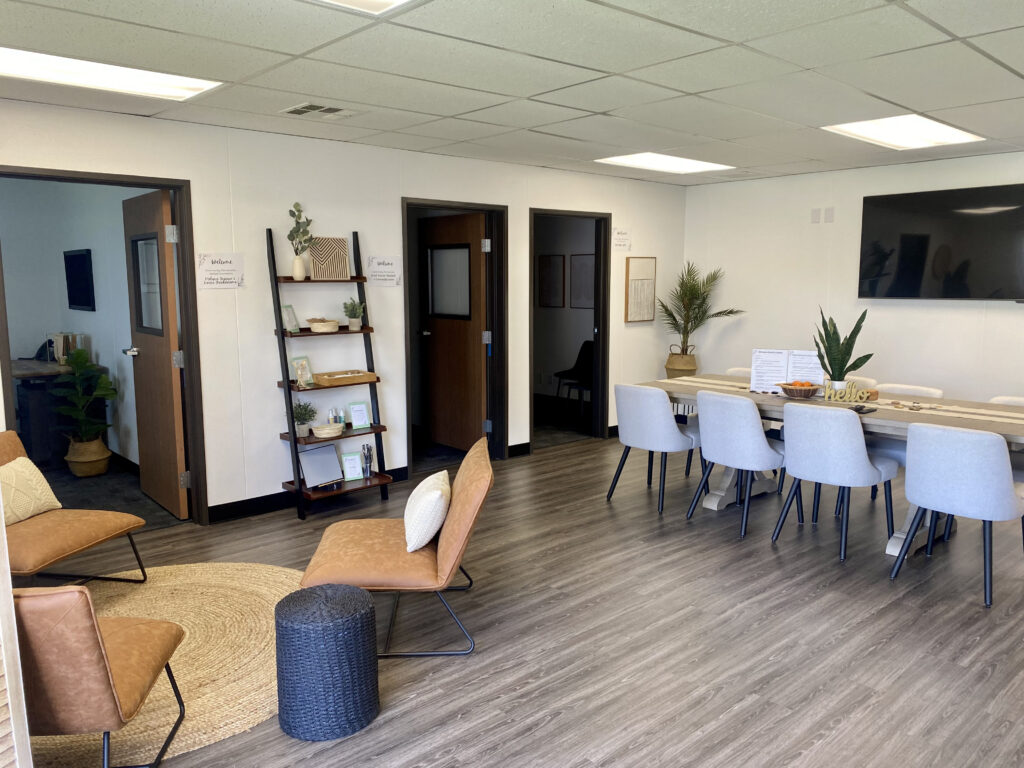Empty seats were scarce in the multipurpose room at Nicolas Junior High as families packed the room on March 30, eager to find out how the new community center will help thousands of people with students attending the Fullerton School District.
The northern Orange County district was awarded $7.8 million in the first round of implementation grants as part of the California State Board of Education’s $4.5 billion California Community Schools Partnership Program, which is investing in a “whole child” approach and bringing in community partnerships to support improved academic outcomes and family development.
Community schools are public schools that partner with stakeholders to create the conditions students need to thrive. The model promotes caring for the whole child by providing services and support that are based on what students in that specific community need to succeed — whether that’s free healthy meals, health care, tutoring, mental health counseling or other tailored services before, during or after school, and on weekends.
State Superintendent of Public Instruction Tony Thurmond was among those in attendance.
“Our wish for all students and families is to use education to open doors and opportunities,” said Thurmond. “Community schools are very important, and they mean all the things that you heard about services and supports. They’re another way to help our students be successful.”
Centrally located at the middle school campus, the Nicolas Community Center will serve as the district’s hub of various wrap-around services for more than 2,750 students and their families from Nicolas and five elementary schools — Commonwealth, Maple, Richman, Valencia Park and Woodcrest.
Inside the center, students and families will be greeted with a design aesthetic centered with calming natural wood tones and greenery, private rooms for them to conduct telehealth appointments, access to a local urgent care facility and two pharmacies that will help families without insurance. They’ll also have access to free weekly family meals.
“We have families that don’t have access to basic antibiotics,” said Superintendent Dr. Robert Pletka. “With these partnerships, we can now provide urgent care-type services through partners like St. Jude Medical Center for kids who need it.”
The center will be staffed with counselors, social service workers and a full-time community liaison to help students and their families.
“Wraparound services allow us to address barriers within the learning environment to help students feel safe, secure and ready to learn,” said Dr. Julienne Lee, the district’s associate superintendent of educational services. “Our ultimate goal is for students to thrive.”
A student’s perspective
While most of the speakers at the ribbon-cutting ceremony were adults, younger members of the community got to hear from one of their own on Thursday.
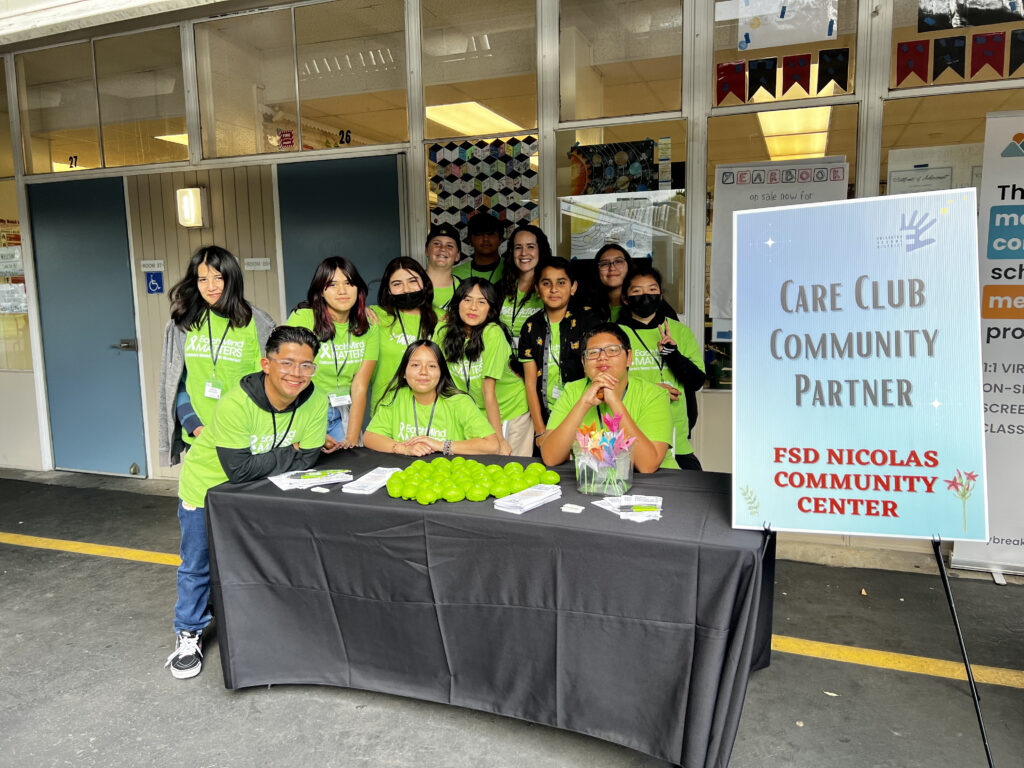
Eighth-grade student Ruby Campos is the president of Care Club, a leadership group on campus that is supported by the Orange County Department of Education’s Student Advocates for Mental Health Initiative, which trains young people to raise mental health awareness and to reduce stigmas through peer-led campaigns.
Despite being a well-known advocate for mental health awareness on campus, Ruby says she started seventh grade with great difficulty when it came to managing her own emotions and focusing in class.
“If I got into an argument with someone or my sister before school, then I’d come to school very angry and somehow it would become everyone’s problem,” shared Ruby.
Citing a generational gap, Ruby found it difficult to open up to her parents. So she turned to her campus’ counseling team.
“Our school’s mental health specialist, Tanya Gustin, gave me a notebook and encouraged me to write every time I was upset,” said Ruby. “She talked me through my emotions and introduced me to Care Club.”
There, Ruby found a space to be herself and speak about her emotions — along with a community that supported her.
With the creation of the new community center, Ruby believes challenges that young people and their families face will be met with actionable solutions to help them focus on their education.

